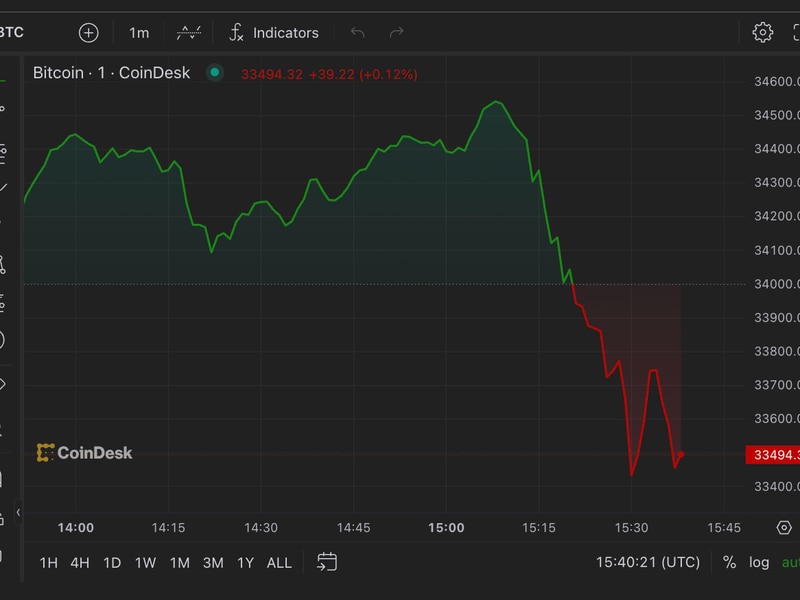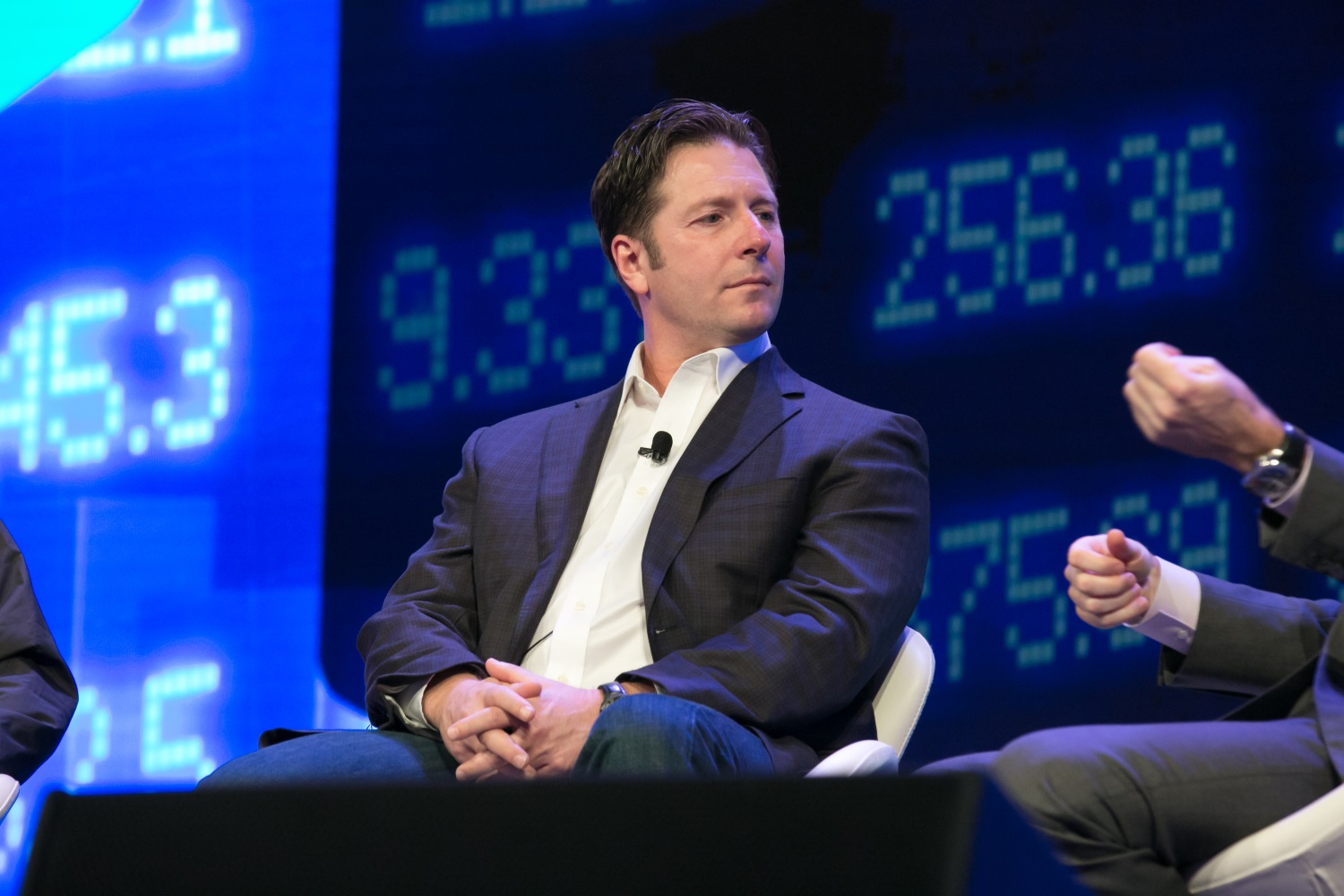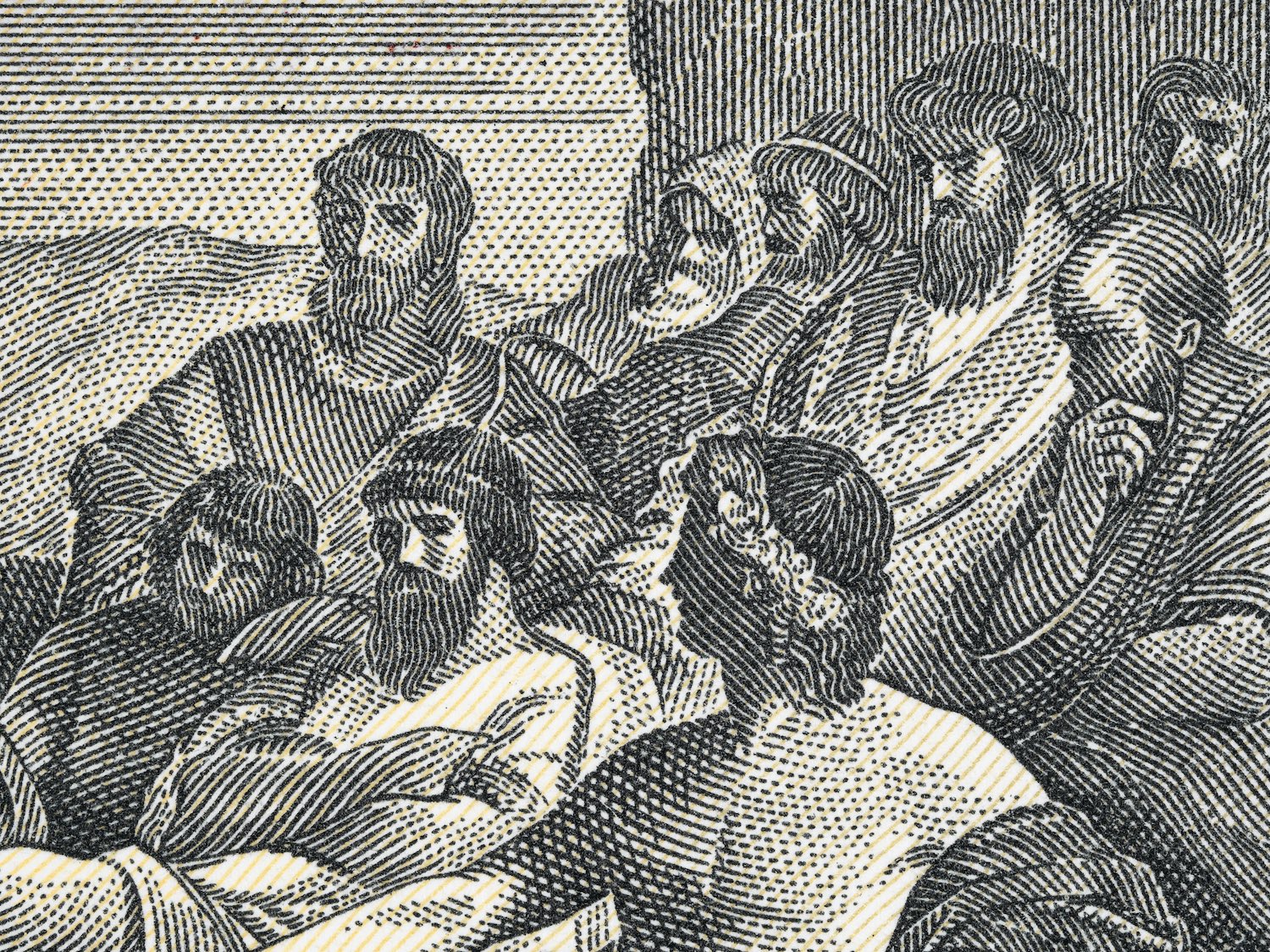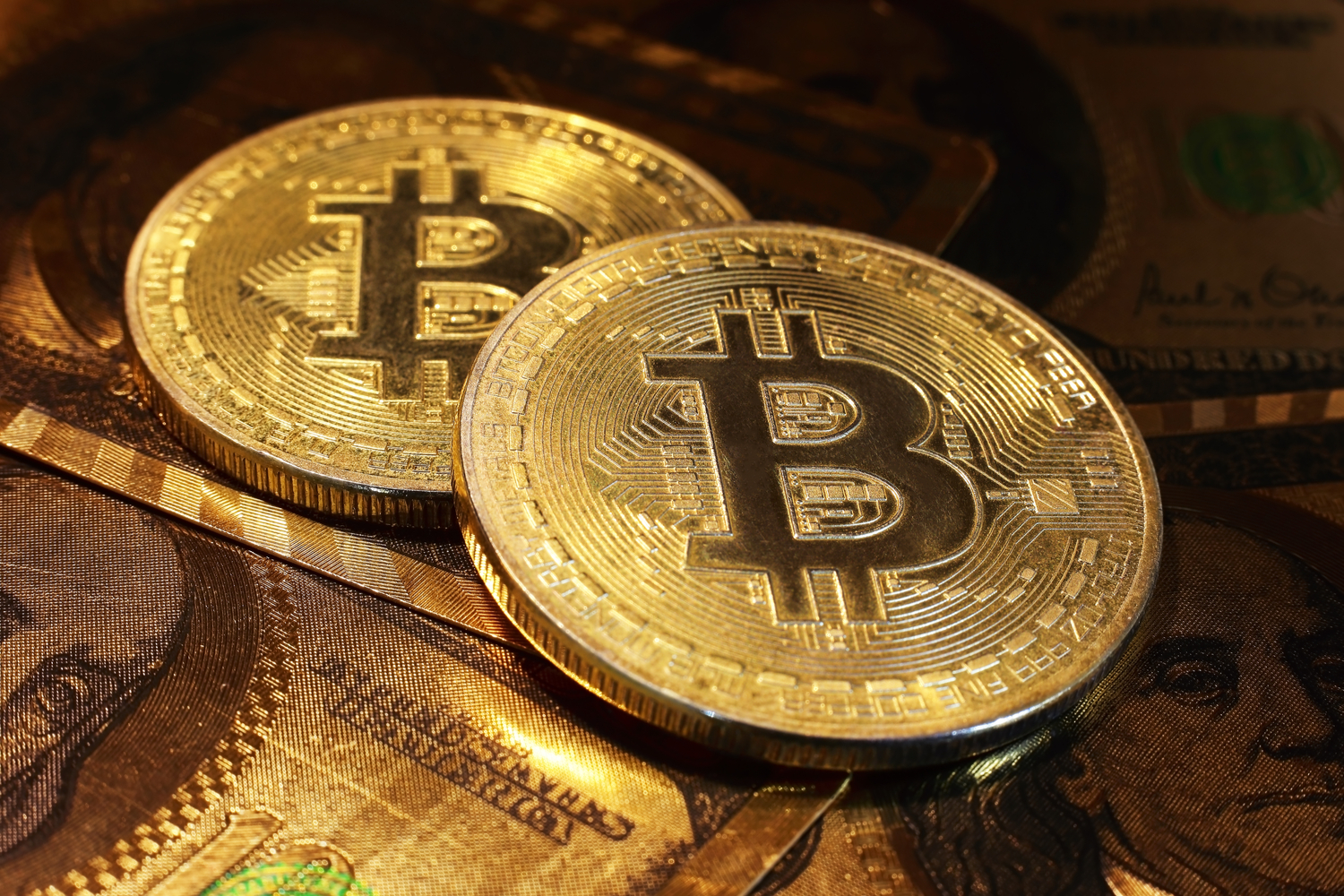Olaf Carlson-Wee: Crypto Is the Great Wealth-Redistribution Machine
Join the most important conversation in crypto and Web3 taking place in Austin, Texas, April 26-28.
:format(jpg)/www.coindesk.com/resizer/vnZ-Veq8nIL_1EZIUunhEHOvN6s=/arc-photo-coindesk/arc2-prod/public/UO3R6YECBFGEBJASELT5ZK754A.jpg)
Daniel Kuhn is a features reporter and assistant opinion editor for CoinDesk’s Layer 2.
He owns BTC and ETH.
Join the most important conversation in crypto and Web3 taking place in Austin, Texas, April 26-28.
Olaf Carlson Wee is the prototypical “crypto bro.” He got in early, got rich and now spends his time investing and making art. He wears colorful, flamboyant clothes, has bleached his hair and has an electronic music studio in his home. In 2017, around the time of the initial coin offering (ICO) craze, Carlson-Wee made a name as a public figure as one of Coinbase’s earliest hires and expert voice. He wrote a blog about decentralized applications of blockchain, and argued tokens are not investment contracts, in part, because they have utility.
Olaf Carlson-Wee will be speaking at Consensus 2023, in Austin, Texas.
To hear him tell it, the most recent crypto bull run was less fun. Although still heavily invested and active in the crypto industry, he seemed to step back from the spotlight. He did give an interview to the très chic Interview Magazine (founded by Andy Warhol), where he described his post-college, pre-Coinbase life in a hippie enclave in Washington state and later in a Minnesota cabin. It was around then that he started seriously thinking deeply about crypto, a habit he has yet to kick. Ever since, Carlson-Wee has been on a mission to improve his life and the world – he believes in both meritocracy and wealth redistribution, and has a challenging view of what “progress” really means.
CoinDesk caught up with the part-time investor, part-time philosopher ahead of his appearance at Consensus 2023. Although prototypical in some sense, Carlson-Wee is also highly singular. The interview touches on artificial intelligence, techno-optimism and what he calls “super happiness.” It has been edited slightly for clarity and length.
Where do you land on the AI doomerism/optimism scale?
Yeah, so there’s one thing I think is very important, and I’m surprised that this isn’t the consensus view, which is that [artificial intelligence] is inevitable. The idea that every government, private company, every individual hacker in the world is going to sign and agree to, like, slow down AI research is jokingly nice. And it’s very scary to me that people would rather hand over control of all this development to some sort of, you know, vague, global body that controls how we can develop and interact with AI systems – that would make decisions for the rest of humanity. Now this is out of the box, I don’t think it’s possible to stop, we can sort of predict the way things will go. Some trends are kind of obvious: There’s going to be automation of a large swath of the current “white-collar labor market.” Consumer AI systems are really just better and more efficient versions of mental labor. But when it comes to longer-term trends, whether AI will destroy us – these things are fascinating. Through prompting AI you can actually get it to write software, explain to you how to download it and get it running on your machine – that’s how it escapes the box, right? It’ll become very tricky to discern, like, what is human and AI, or what was augmented. The weird effects here are emergent and hard to predict. When I think about it as an investor, and see algorithms that are trained on specific data, maybe the algorithm itself ends up being a commodity, which I think is something nobody exactly saw. You know, there’s this sort of interface and application layer that actually ends up being the most valuable components themselves. I do think it’s possible this is one of the singularity technologies where we create an AI to write code to create a better AI and it’s like a recursive loop, which may lead to recursive loops with other novel technologies.
Is there an analogy to crypto here? As in, crypto that’s truly resilient and immutable, is it not only impervious to regulation but also inevitable?
I do not think it is possible to stop. The genie’s out of the bottle. It’s open-source, permissionless – anybody can sort of opt into this and start using it or start building their own version. Once you launch these things into the world that have those properties, I really do not think it is possible to stop them. You can slow them down in specific regions but the world is quite competitive. And, you know, different regions with perhaps more favorable rules creates economic incentives for other people to sort of support and facilitate that region. As an extreme example, suppose there was only one country in the entire world where AI development and cryptocurrency were legal, that country would very quickly become extraordinarily wealthy. Right? There is this sort of game theory of nations competing with each other where if you’re not the country that controls the global reserve currency you might benefit from the development of crypto.
You cold-called Coinbase for your first job. What was it about Coinbase that made you want to join?
This is over 10 years ago, now. I was the 30th user of Coinbase. So there was a really tiny, like micro, micro crypto ecosystem – not by any means an industry, but [collectively] like an open-source software project and these little rinky-dink businesses built around it. In the early days of bitcoin, ironically, you could not buy it online because of payment processors (credit cards, PayPal, bank transfers) protecting against fraud. Interestingly, Brian [Armstrong, the chief executive of Coinbase] was an anti-fraud engineer at Airbnb. His original insight was building an app that allowed him to take online payments – basically becoming the first company where you could buy [bitcoin] online. It had a friendly interface. It was based in America. I was sort of waiting to see if it got hacked in the first couple months – back in those days the lifespan of a crypto wallet was measured in weeks. Eventually, after I started using Coinbase, I started to feel it was the model to take bitcoin mainstream. [It] handled custody, sending bitcoin to other people and logins to make account recovery possible. You could use it from your phone or computer, you’re not going to a bank or meeting somebody in person. It was a killer company, the only company I applied to work for in my entire life.
In an interview you gave to Celo, which you’ve invested in, you said it was the best chance to get everyone around the world a banking-like system. This was a number of year ago, and I’m willing to say crypto generally and Celo in particular are still immature – but at the same time mass adoption has not happened as many have said it will. Is crypto still waiting to find its use case?
Crypto has, you know, over a trillion dollars of value. You can measure it in different ways, but let’s call it 50 million different holders. So as a wealth preservation product, there’s arguably substantial product market fit at this point. And, you know, I am a believer in these secure blockchain systems for different useful types of applications – for computation and diverse applications. We still have [to see] 10x growth in value just to get to gold parity, and just think how many new features crypto can support beyond what gold does. My absolute bear case is that crypto only reaches gold parity. But just think about the total addressable market of anybody who has any amount of savings. I mean, what [percentage] of people’s wealth do they have in crypto? Anecdotally, over time the number tends to creep up – you kind of start out just holding bitcoin, then fast forward five years and, like, a huge chunk of your total wealth ends up being stored in these systems as you gain faith and confidence in them. So even if the only use case we ever have has already been discovered, I think we’re in a relatively immature market with a huge amount of growth.
You mentioned earlier how countries that enable crypto development could become insanely wealthy, which reminded me of a quote you gave to Interview Magazine about rewriting the global economic and financial system to transfer wealth from “traditional elites to those in the cryptocurrency sphere.” Arguably, that has started to come true. Are you happy with the results so far?
When people look at a system like Bitcoin, and they have criticisms of it, like “this isn’t real” or the fact that some people have more than others, these are all in some sense criticisms of the existing system of markets and capitalism. Most people have never thought about how it all works. For some people, criticizing crypto is the first time they ever take a first-principles approach to reasoning about what money is. Crypto is an alternative sociological belief system that questions what is legitimate. We all sort of agree on the legitimacy of the dollar, but it’s still a social contract. The dollar is not like gravity, where we can measure it and reason about it in precise terms. Similarly, crypto is sociological – this movement to create a unified, global financial system relies on technology but it’s also a shift in a belief system about what’s legitimate.
What should positive wealth redistribution look like then, should the government have a role in it?
You know, I think so. I started believing in a meritocratic system where people have different abilities and insights than others (which should not be a controversial insight). A global system of resource distribution is meant to appropriately distribute resources to people – with the most going to those who are going to help other people the most. That’s because they invest in themselves to invest in the world. I really do have a positive view on the whole thing. Like, I don’t think the ability to centrally plan resource distribution makes any sense whatsoever because the world is so complex and chaotic. It’s way more unpredictable than any individual group or person could possibly wrap their head around. And so resource distribution is better from the ground up, like how the best way to build infrastructure is through open and permissionless innovation.
You have one life, just go for exactly the life you want
Does the idea that people have naturally different abilities or interests speak at all to your own or the wider tech community’s interest in transhumanism and life extension?
So, to be clear, for me personally I’m not that interested in life extension. I’m not that interested if we can get everybody to live to 120 instead of 90. I’m much more interested in, I hate this term but, improving “quality of life.” One of the core insights from the early transhumanist thinkers is whether we are genuinely orders of magnitude happier than our ancestors. Are people who have built up a lot of resources orders of magnitude happier than your average person who has access to a normal level of resources? I don’t need a scientific study to anecdotally know the answer is no. The differences in well-being and happiness are actually not that dramatic between people in the past or across different societies. And so what I’m very interested in is, you know, our hardware, so to speak, our brains and bodies is the result of a kind of Darwinian evolution. We can use different technological approaches to sort of optimize ourselves not for reproduction but actually for happiness and well-being. So I’m much more interested in improving what you might call “super happiness.”
If you had to decide between dying tomorrow or living forever, what would you choose?
Do I have to live forever?
I’m gonna pass on answering that one because I honestly need to think about it. Being forced to be alive forever – that’s very very scary in a way. Broadly, I want more life, not less. It’s not like I’m against living longer but I would rather have an extremely fulfilling and happy life than a long, monotonous, hard life.
Any recommendations for people who want to live a happier, more fulfilled life?
That’s a big question. If I was just doing bullet points, the big one is you have one life, just go for exactly the life you want. Don’t let anybody else judge you or change that path. Develop your own view of what you want your life to be and never ever stop chasing after it.
That’s a good answer. I spoke to someone you hired at Coinbase who described it as a ragtag team back in the day. Now that you’re an investor do you miss the more hands-on experience of coding and managing a team? Do you take an active role in the companies you invest in?
It absolutely was a super ragtag team. I am a huge believer in supporting outsiders that have great insights, but not a lot of social or material proof. I love supporting outsiders and people who are thinking differently. And I still love supporting and getting involved in those kinds of early stages and being the first believer for somebody. But I think I got a lot of the “operational firefighting” out of my system at Coinbase. I was there for three and a half years, and think I did about a career-worth of work. Investing is cerebral.
Do you have a favorite book?
My favorite authors are David Foster Wallace and Cormac McCarthy. If I had to pick one book, it might be “Infinite Jest,” which is kind of DFW’s magnum opus.
That book changed my life.
Yeah, I get it. The first time I read it, I read it in like a week, which means reading for probably six, seven hours a day. As an author, DFW captures extraordinarily well what it feels like to be a person and have consciousness. I really felt like he was inside my brain. I have two older brothers who are authors, and my parents were ministers full time for about three decades each, both retired now. They were both English professors before they were ministers.
A family of readers and writers.
Yeah, it was a literary family.
This was pretty solid, I think we could call it here. Anything you’d like to add or highlight?
Yeah, actually, let’s go there.
You know, the general feeling is that crypto is the underdog. It’s subversive. It’s not the obvious thing. It’s sort of like this contrarian place to be that’s shrouded in obscurity. All that stuff. That’s what I’ve always found really motivating about crypto. The flicker of broad, mainstream awareness and attention around in 2021 was actually like the least interesting time for me personally. So I’ve just been really invigorated by a return to building out of the spotlight and refocusing on really fundamentally, building systems that can support the global financial system. Rather than, you know, hype and media attention that comes with these sort of big market movements.
1. Are you still deploying capital? 2. If founders are reading this, what would get your attention?
We are. We have been for almost seven years. The core proposition has never really changed for me, which is low-level protocols and infrastructure. It’s always been an area I have a huge intellectual interest in. But if you have a breakthrough concept – whether it’s a new invention or novel economic model – come talk to me. That’s what we specialize in, the stuff that nobody else gets.
That is the perfect quote to end on.

DISCLOSURE
Please note that our
privacy policy,
terms of use,
cookies,
and
do not sell my personal information
has been updated
.
The leader in news and information on cryptocurrency, digital assets and the future of money, CoinDesk is a media outlet that strives for the highest journalistic standards and abides by a
strict set of editorial policies.
CoinDesk is an independent operating subsidiary of
Digital Currency Group,
which invests in
cryptocurrencies
and blockchain
startups.
As part of their compensation, certain CoinDesk employees, including editorial employees, may receive exposure to DCG equity in the form of
stock appreciation rights,
which vest over a multi-year period. CoinDesk journalists are not allowed to purchase stock outright in DCG
.
:format(jpg)/www.coindesk.com/resizer/vnZ-Veq8nIL_1EZIUunhEHOvN6s=/arc-photo-coindesk/arc2-prod/public/UO3R6YECBFGEBJASELT5ZK754A.jpg)
Daniel Kuhn is a features reporter and assistant opinion editor for CoinDesk’s Layer 2.
He owns BTC and ETH.
Learn more about Consensus 2023, CoinDesk’s longest-running and most influential event that brings together all sides of crypto, blockchain and Web3. Head to consensus.coindesk.com to register and buy your pass now.
:format(jpg)/www.coindesk.com/resizer/vnZ-Veq8nIL_1EZIUunhEHOvN6s=/arc-photo-coindesk/arc2-prod/public/UO3R6YECBFGEBJASELT5ZK754A.jpg)
Daniel Kuhn is a features reporter and assistant opinion editor for CoinDesk’s Layer 2.
He owns BTC and ETH.









